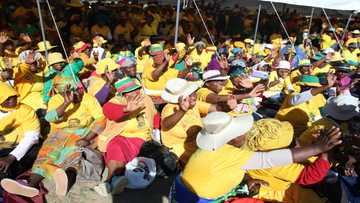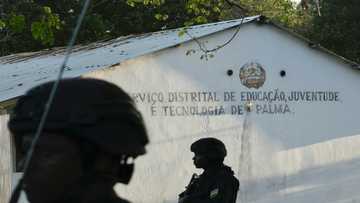Lesotho, Africa's turbulent mountain kingdom

Source: AFP
PAY ATTENTION: Сheck out news that is picked exactly for YOU ➡️ find “Recommended for you” block on the home page and enjoy!
Lesotho, which holds parliamentary elections on Friday, is a politically unstable mountain kingdom entirely surrounded by South Africa, on which its economy largely depends while supplying its huge neighbour with most of its water.
'Kingdom in the sky'
Lesotho is known for the beauty of its mountainous terrain, and styles itself the "Kingdom in the Sky".
More than 80 percent of the country, which is about the size of Belgium, sits 1,800 metres (5,900 feet) above sea level. Its highest peak is Mount Thabana Ntlenyana, with an altitude of at 3,482 metres.
A constitutional monarchy, it is ruled by King Letsie III, who has no formal power. The government is led by a prime minister, who usually comes from the party with the majority in the 120-seat parliament. The country has had a coalition government for the past 10 years.
The Basothos, a people from southern Africa's Bantu ethnic group, are a large majority in Lesotho, and most of the population is Christian.
PAY ATTENTION: Enjoy reading our stories? Join YEN.com.gh's Telegram channel for more!
Maseru is the capital and largest city, with almost 350,000 inhabitants.
The two official languages are English and Sesotho.
Turbulent history –
Lesotho has been plagued by repeated bouts of instability, coup d'etats and scandals.
A former British protectorate known as Basutoland, it achieved independence in 1966 under King Moshoeshoe II.
In 30 years of reign Moshoeshoe was forced into exile twice. First as violence followed a disputed election in 1970 and again in 1990 after a military putsch. He died in a car crash in 1996 and was succeeded by his son Letsie III.
In 1993 the country held its first democratic elections after 23 years of coups and military regimes.
In 1998 political unrest and an army mutiny prompted the intervention of troops from South Africa and Botswana.
In 2007 a curfew is imposed in Maseru after a series of attacks on ministers and their bodyguards.
And in 2014, the army led by a sacked general seizes control of police headquarters, forcing prime minster Thomas Thabane to flee to South Africa. Thabane returns in 2017 becomes head of government after a ballot box win.
But in 2020 he is forced to step down after being accused of ordering the murder of his estranged wife.
Charges against him were dropped in July.
Water tower
Lesotho is not only landlocked, it is hemmed in on all sides by the territory of just one other state, South Africa.
A poor country of just over two million people, it is economically dependent on South Africa, where much of the population goes to work.
Remittances account for about 60 percent of household incomes. Unemployment is 22.5 percent, according to the World Bank.
It imports much of its food from South Africa, but South Africa counts on its neighbour for its abundant reserves of water -- to an extent that Lesotho is nicknamed South Africa's "water tower".
The Katse Dam reservoir supplies Pretoria and Johannesburg.
The country also has several diamond mines, where the 5th largest diamond in the world (910 carats) was discovered in 2018.
In 2017, Lesotho became the first African nation to allow cultivation of medicinal cannabis.
About 70 percent of cannabis in South Africa comes from Lesotho where "green gold" is the third source of income.
Life expectancy
With more than 30 percent of its population living on less than $1.90 a day, Lesotho ranks among the world's poorest countries. About one in three children are stunted due to malnutrition, according to the UN.
The coronavirus pandemic has dealt an additional blow to the fragile economy which is highly reliant on agriculture but highly exposed to the impact of climate change, suffering from shocks, such as drought and early frost.
Almost one in four people is infected with HIV, the second highest rate in the world. Life expectancy in 2020 was 55 years.
New feature: Сheck out news that is picked for YOU ➡️ find “Recommended for you” block on the home page and enjoy!
Source: AFP




